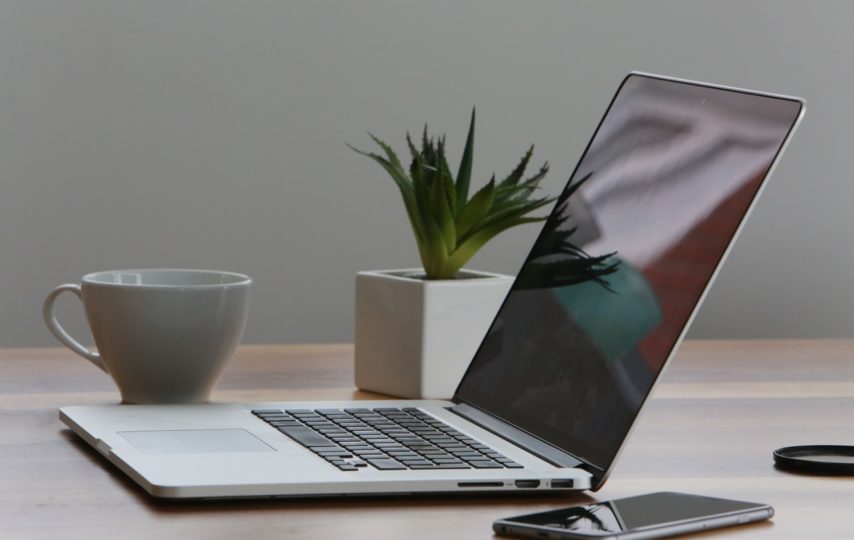If we take a trip down memory lane, we can hear ourselves, almost eons ago, wondering why laptops couldn’t be lighter. Over the past ten years, a lot has changed, especially in the laptop industry. Similar to how laptops replaced traditional desktops from 2000 – the 2010s, laptop brands have been successful in leaving the older models behind, and have been offering us newer models with top-of-the-line features and the latest technology.
We all evolve, and similarly, the PC industry to has seen significant strides being made in the past ten years. Whether we say that in terms of laptop design, functionality, features, or any other tangible parameter, nothing has remained the same. Premium laptops offered by top brands today come with dual screens or can be folded and bent according to our convenience.
That said, here are a few ways in which laptops have changed over the last decade.
- Better Processors
In January 2010, Intel launched its first Core i5 processor for desktops with over 3.0GHz, with the i5-650. During the same period, the company also released the first Core i3 processors for desktops, with i3-530 and i3-540. In July 2010, Intel unveiled its first Core i7 desktop processor, the i7-970, which came with six cores and ran at 3.2GHz. However, today, we get laptops that run on Intel Core i9 processors with 18 cores! Similarly, we can now purchase laptops that come with the AMD Ryzen 9 3900X processor, which comes with 12 cores, and is also one of the best processors in the market owing to its impressive multi-threaded performance.
2. Gaming Laptops
Back in the day, gaming on laptops was seen more as a luxury, an add-on, rather than an integral part of the laptop experience. Gamers were more or less expected to rely on bulky desktops and gaming consoles to quench their thirst for action-packed games with excellent graphics. All that changed when Razer, in 2011, rolled out with Razer Blade, a dedicated gaming laptop that came with an i7 processor and GT 555M graphics card. Today, brands like Acer, Razer, Asus, and Lenovo offer excellent gaming laptops, with best-in-class processors and GPUs. Some of the best gaming laptops today include Asus Zephyrus G14, Asus TUF A15, Alienware Area-51m. Dell G5 15 SE (2020) and Lenovo Legion Y740, to name a few.
3. Higher RAM Size
Earlier versions of laptops, and we’re talking about laptops that we had about 10 years ago, mostly came with DDR3 RAM. This confined the maximum limit or capability of RAMs in laptops to 16GB, with a clock speed between 800 MHz to 2133 MHz. Today, however, modern laptops come with DDR4 RAM, which does not have a cap in terms of RAM sizes in laptops. That is, modern laptops can house even 32GB RAM, such as the Dell Latitude 7710. While these laptops are incredibly powerful, 32GB RAMs are usually found in high-end, business-series laptops.
4. Solid State Drives
Earlier, laptops used to come with hard disk drives or HDDs. Hard disk drives are relatively old-school, and they are storage devices that use mechanical platters, along with moving read/write heads to access data on laptops. Considering they are mechanical platters, they take up more space inside the laptop chassis. HDDs are relatively slower, and due to their mechanical nature, consume more power.
In most of the modern mid-range laptops today, we find solid-state drives, which are slowly replacing HDDs. SSDs are newer, faster devices that store data on instantly-accessible memory chips. Considering they are non-mechanical in nature, laptops with SSDs provide better battery life and considering they store information on flash memory, laptops with SSDs are considerably faster. Some of the best laptops in India, such as Apple MacBook Air, HP Envy 13-AD128TU, and Dell Inspiron 7567 come equipped with SSD storage.
Read More: Top 10 Best Most Expensive Laptops
5. Hybrids, Notebooks, and 2-in-1 Convertibles
Laptops today offer greater convenience. From ultra-thin, lightweight laptops to hybrids and 2-in-1 convertibles, we can find models that cater to our specific needs and requirements. Hybrid convertible laptops and notebooks are relatively smaller in size, with 15-inch screens or less. Hybrid convertible laptops can either be used as traditional laptops, or as tablets with foldable keyboards, depending on your requirements. Meanwhile, 2-in-1 convertible laptops come with detachable keyboards, so that you can use it as either a laptop or as a pure tablet.





